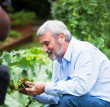Over the last century, enormous developments have occurred in dogs. There are over 160 breeds of dogs available in Australia and the colours, sizes and shapes are truly a great achievement.
Despite what most dog clubs claim, modern dog breeds virtually all started around 1880 (or later). Prior to approximately this date dog clubs and pedigree systems as we know them today simply did not exist. Strains of dogs existed, but they were not very uniform and they were constantly out-crossed.
Up to about 1880, dogs were expected to perform jobs; exactly what they looked like was not so important. Weak dogs, aggressive dogs, dogs that had trouble having puppies were simply destroyed. Over the last century, dogs have largely ceased to perform the jobs of hunting, fighting and herding and have largely been bred for the show ring. Since veterinary help is always available, show winning dogs that have poor temperament, crook bones or problems having puppies have commonly been used at stud. This has led to awful problems:
dogs that live their lives in constant pain due to joint and bone problems, inwards-facing eyelashes, skin disorders or malfunctioning body organs. dogs that have problems breathing: bulldogs, pekingese, pugs etc.
dogs which have aggressive tendencies, leading to the dogs finishing up at pounds and humans ending up in hospital: Australian Cattle dogs, Rottweilers, German Shepherds, etc.
dogs where coat colour (or some other ornamental feature) produces deaf, blind or otherwise impaired puppies: merle coloured Australian Shepherds, Collies, etc.
Burke’s Backyard, supported by both the RSPCA and the Animal Welfare League, opposes this sort of bad breeding, but sadly we can do little to stop it at the moment. If you were to cause pain to an animal by torturing or killing it, the RSPCA can prosecute you. But if you knowingly breed animals (generation after generation) that are in constant pain or which often die, nothing can be done to stop it.
RSPCA view
The RSPCA has a policy supporting genetic manipulation if it’s to benefit the animal – to eliminate a congenital deformity for example – but opposes it simply on the basis of cosmetic advantage when it causes the animal severe problems.
Dog breeders blame these problems on “backyard breeders” saying that the better breeders don’t cause these troubles. This is not true. The genetically-damaged puppies come, in the most part, from main stream breeders and are often the results of the breed club standard of excellence (eg Bulldogs).
Having said that, a small percentage of pedigreed dog breeders are genuinely trying to solve these problems. The German Shepherd dog league is doing an excellent job in selecting for German Shepherds with better temperament, better bones and joints, and an overall better constitution.
The Bulldog Club of Australia is considering doing likewise and we will follow up on this in later programs.
Speaking on Burke’s Backyard, RSPCA NSW Chief Executive Officer, Mr. Charles Wright, said he hoped that many other clubs followed these leads and urged canine groups to look at these examples as positive projects, of benefit to members, breed clubs and the general public.
The problem currently is quite simple. It is very, very hard to win at dog shows. You get points for coat, size and shape of all body parts, gait and many other ornamental features but you don’t get points for temperament (as long as the dog doesn’t bite the judge!), soundness of joints, ease of having puppies etc. In fact, most of these things would be completely unknown to the dog judge. Once a dog wins sufficiently at shows they get the word “Champion” attached to their name. These are the dogs that produce puppies that people clamour for.
The German Shepherd Dog League holds special days prior to the dog shows where they test temperament, hip joints etc. And the dogs win or lose points on these tests. The net score is then used in the show ring to judge the entire dog. Until all dog clubs do something similar, we can expect a general decline in health, happiness and disposition of our pedigreed dogs. The Australian National Kennel Council Hereditary Diseases Committee which includes Burke’s Backyard’s vet Dr. Rob Zammit is also doing good work in trying to improve breeding programs for dogs.
We would like to hear from dog clubs and dog breeds who are actually trying to improve the lot of their breed. These are the people we wish to support.



